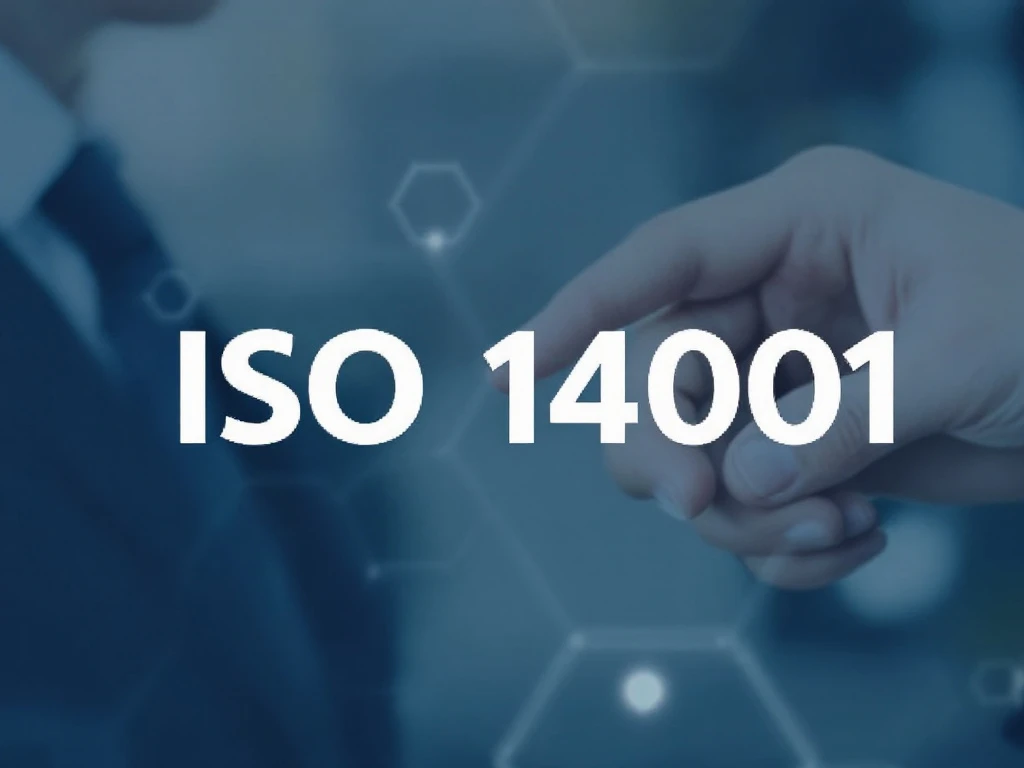
Andres Fellenberg Van der Molen
Director at Green Partner Europe | Hotels Specialist | Sustainability | Energy Efficiency | Circular Economy | Zero Waste | CSR | ESG | SDG

Who provides ISO 14001 certification?
ISO 14001 certification is issued by accredited third-party certification bodies that have been authorized by national accreditation organizations. These certifying organizations undergo rigorous assessment to ensure they meet international standards for conducting environmental management system audits. Companies seeking formal recognition for their environmental practices must engage these approved certification providers, who verify compliance with the ISO 14001 standard through comprehensive auditing processes.
Who provides ISO 14001 certification?
The environmental management system certification landscape involves several key players working in a structured hierarchy. At the highest level, the International Accreditation Forum (IAF) oversees the global accreditation system. Under this umbrella, national accreditation bodies in each country (such as UKAS in the UK, ANAB in the USA, or RvA in the Netherlands) evaluate and authorize certification bodies to perform ISO 14001 audits. Only these accredited certification bodies—organizations like Bureau Veritas, SGS, TÜV, and DNV—possess the authority to issue valid ISO 14001 certificates.
What makes these organizations qualified is their demonstrated compliance with strict international standards governing certification activities. They must maintain independence, employ qualified auditors, and follow standardized assessment methodologies to ensure consistent evaluation of environmental management systems worldwide.
What qualifications are required for ISO 14001 certification bodies?
Certification bodies must meet the comprehensive requirements outlined in ISO/IEC 17021-1, the international standard governing organizations that audit and certify management systems. This standard ensures certification providers operate with competence, consistency, and impartiality. The accreditation process scrutinizes every aspect of a certification body’s operations—from organizational structure and resource management to auditing methodologies and ethical practices.
Additionally, certification bodies must employ auditors with specific environmental expertise. These professionals typically need a combination of formal education in environmental sciences or related fields, specialized training in ISO 14001 requirements, and substantial practical experience in environmental management. Many must also obtain personal certifications from organizations like IRCA (International Register of Certificated Auditors) or equivalent national schemes, demonstrating their individual competence in conducting thorough environmental management system assessments.
How do you choose the right ISO 14001 certification provider?
Selecting an appropriate certification body requires careful evaluation of several key factors. First, consider their specific industry experience—providers with a track record in your sector will better understand your environmental challenges. Reputation matters significantly; research their standing within the certification community and seek testimonials from current clients.
Geographical scope is another important consideration. If your organization operates internationally, a globally recognized certification body with mutual recognition agreements across multiple countries may offer strategic advantages. The expertise of the assigned audit team is crucial—request information about the qualifications and experience of potential auditors before making your selection.
Finally, evaluate their service approach. Some certification bodies offer a more consultative style, providing valuable insights during the audit process, while others maintain a stricter assessment-only approach. Choose a provider whose methodology aligns with your organizational culture and improvement goals.
What is the ISO 14001 certification process?
The certification journey begins with a formal application to your chosen certification body, followed by an optional but recommended pre-assessment (or gap analysis) to identify improvement areas before the formal audit. The certification body then conducts a document review, examining your environmental management system documentation against ISO 14001 requirements.
The critical phase is the on-site audit, typically conducted in two stages. Stage 1 evaluates your system’s readiness, while Stage 2 thoroughly assesses implementation and effectiveness. Any identified non-conformities must be addressed through corrective actions before certification can be granted.
Following successful resolution of issues, the certification body makes its certification decision. The entire process typically takes 3-6 months, depending on your organization’s size and readiness. Our expert team at Green Partner guides organizations through this certification process, ensuring you’re prepared at each stage.
How much does ISO 14001 certification cost?
Certification costs vary considerably based on organizational factors. Direct certification provider fees typically range from €2,000 for small organizations to €15,000+ for large, complex operations. These fees cover initial assessment and the three-year certification cycle.
Implementation costs often exceed the certification fees themselves. Organizations must consider expenses for documentation development, training, potential infrastructure improvements, and possibly consulting support. Small to medium enterprises might budget €5,000-€10,000 for implementation, while larger organizations may invest €20,000 or more.
Ongoing maintenance costs include internal resources dedicated to system management and annual surveillance audit fees (typically 30-50% of the initial certification cost). When evaluating total investment, consider both tangible expenses and the valuable returns through improved environmental performance and operational efficiency.
How long is ISO 14001 certification valid?
ISO 14001 certificates operate on a three-year validity cycle. During this period, certification bodies conduct surveillance audits—typically annually—to verify continued compliance and system effectiveness. These interim assessments are less comprehensive than the initial certification audit but still thoroughly evaluate key system components and ongoing improvement.
At the three-year mark, organizations undergo a complete recertification audit to renew their certificate for another cycle. Maintaining continuous certification requires diligent system management and addressing any non-conformities identified during surveillance activities.
If certification lapses or is suspended due to serious non-conformities or missed surveillance audits, organizations may need to undergo a new full certification process rather than a simple renewal, potentially at greater cost and effort.
Can you get ISO 14001 certified without external help?
Self-implementation of ISO 14001 is entirely possible for organizations with sufficient internal expertise and resources. This approach offers advantages including deeper organizational ownership of the system and potentially lower direct costs. However, it typically requires more time and carries higher risks of misinterpreting requirements.
The decision between self-implementation and engaging consultants depends on your organization’s existing environmental management knowledge, available resources, and timeline constraints. Many organizations choose a hybrid approach, using consultants for specific complex elements while handling straightforward aspects internally.
Factors influencing this decision include the complexity of your environmental aspects, staff experience with management systems, and organizational capacity to dedicate resources to the implementation project. Even with self-implementation, investment in proper training for key personnel is essential for success.
Your ISO 14001 Certification Journey: Next Steps with Green Partner
Understanding the certification landscape is your first step toward successful ISO 14001 implementation. The process involves selecting qualified providers, preparing for comprehensive audits, and maintaining your system for continuous certification.
At Green Partner, we combine deep environmental expertise with practical experience guiding organizations through the ISO 14001 certification process. Our approach focuses on developing systems that not only achieve certification but deliver genuine environmental improvements and business benefits.
Begin your certification journey with a readiness assessment to identify your organization’s current position and develop a structured implementation plan. With the right partner guiding your environmental management efforts, ISO 14001 certification becomes not just achievable but a valuable catalyst for organizational improvement.
